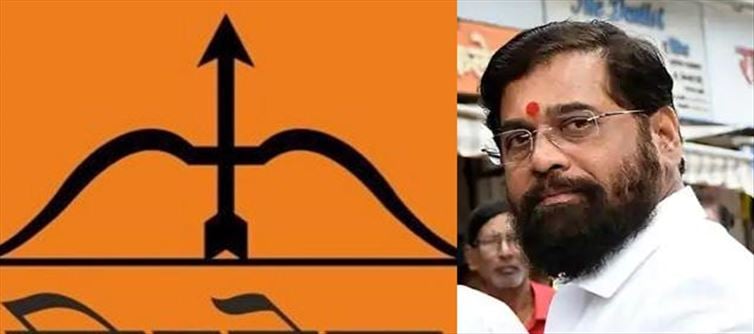
There are several questions that have been raised by the events in Maharashtra. Is the uprising indeed against a dynasty or is it only a struggle for political influence? In his campaign to "put the party on the correct path," Eknath Shinde has made it apparent that he wants to return the party to the fundamental Hindutva ideologies of its late leader Bal thackeray, abandon the maha Vikas Agadhi (MVA) alliance, and work once more with the bjp, a "old friend." The diminishing support base of chief minister uddhav thackeray and his MVA allies have charged the bjp with orchestrating the scheme.
The nation is following the unravelling narrative as the political struggle plays out because it could have an impact on the dynastic system that is popular among some political groups. Whatever the outcome, it might change the country's political landscape. However, the crucial query is: Can india overcome dynasty politics? Some of India's most influential political families include the Gandhis, the karunanidhi family of tamil Nadu, the Yadav family of Uttar Pradesh, the Lalu prasad dynasty of Bihar, the Muftis and Abdullahs of Kashmir, the Badals of Punjab, the Chautalas, Hoodas, Jindals, and Bishnois of Haryana, the Sorens and Jogis of Jharkhand, and the list goes on.
Can the families who have been running these political parties still exist? Is it possible to envision the congress without Gandhi, the National Conference without Abdullah, the RJD without Lalu, the Samajwadi party without Mulayam and Akhilesh, the trs without the Raos, etc.? In truth, it might be a challenge; possibly in most of these parties, the idea of the family not attending the party appears unthinkable. Both the owning family without the party and the party without the family nameplate look like impossibilities.
The rest have not varied from the family ownership pattern, with the exception of the congress, which for a brief period of time had two non-Gandhis in charge. Family conflicts have occurred in these parties, with some members defecting to join rival groups or start new organisations, but the family's influence has not been affected. Non-family leaders continue to slog along, submitting to the dynasty, and eventually dying out.
Opposition to the dynasty
Political experts are in disbelief at the Shiv Sena's abrupt collapse in Maharashtra. Can such an established dynasty be contested? Eknath Shinde may have paved the path. a "courageous" action that has the full support of the BJP. Man friday from uddhav thackeray is now the rebel. The Thackerays are in danger of losing 56 years after the party was founded.
Bal thackeray founded the party that would subsequently make Hindutva its central doctrine on june 19, 1966. Ironically, the party is overthrown during the month of its founding on the grounds that Bal Thackrey's son uddhav and grandson Aaditya turned away from the organization's main principles and supported those the founding father had always opposed.
Shinde wants to call his group shiv sena Bal thackeray since he is receiving more support from within the party. Although the outcome of the internal party squabble may not matter, Shinde has demonstrated that dynasties can be overthrown.
The nation is following the unravelling narrative as the political struggle plays out because it could have an impact on the dynastic system that is popular among some political groups. Whatever the outcome, it might change the country's political landscape. However, the crucial query is: Can india overcome dynasty politics? Some of India's most influential political families include the Gandhis, the karunanidhi family of tamil Nadu, the Yadav family of Uttar Pradesh, the Lalu prasad dynasty of Bihar, the Muftis and Abdullahs of Kashmir, the Badals of Punjab, the Chautalas, Hoodas, Jindals, and Bishnois of Haryana, the Sorens and Jogis of Jharkhand, and the list goes on.
Can the families who have been running these political parties still exist? Is it possible to envision the congress without Gandhi, the National Conference without Abdullah, the RJD without Lalu, the Samajwadi party without Mulayam and Akhilesh, the trs without the Raos, etc.? In truth, it might be a challenge; possibly in most of these parties, the idea of the family not attending the party appears unthinkable. Both the owning family without the party and the party without the family nameplate look like impossibilities.
The rest have not varied from the family ownership pattern, with the exception of the congress, which for a brief period of time had two non-Gandhis in charge. Family conflicts have occurred in these parties, with some members defecting to join rival groups or start new organisations, but the family's influence has not been affected. Non-family leaders continue to slog along, submitting to the dynasty, and eventually dying out.
Opposition to the dynasty
Political experts are in disbelief at the Shiv Sena's abrupt collapse in Maharashtra. Can such an established dynasty be contested? Eknath Shinde may have paved the path. a "courageous" action that has the full support of the BJP. Man friday from uddhav thackeray is now the rebel. The Thackerays are in danger of losing 56 years after the party was founded.
Bal thackeray founded the party that would subsequently make Hindutva its central doctrine on june 19, 1966. Ironically, the party is overthrown during the month of its founding on the grounds that Bal Thackrey's son uddhav and grandson Aaditya turned away from the organization's main principles and supported those the founding father had always opposed.
Shinde wants to call his group shiv sena Bal thackeray since he is receiving more support from within the party. Although the outcome of the internal party squabble may not matter, Shinde has demonstrated that dynasties can be overthrown.




 click and follow Indiaherald WhatsApp channel
click and follow Indiaherald WhatsApp channel